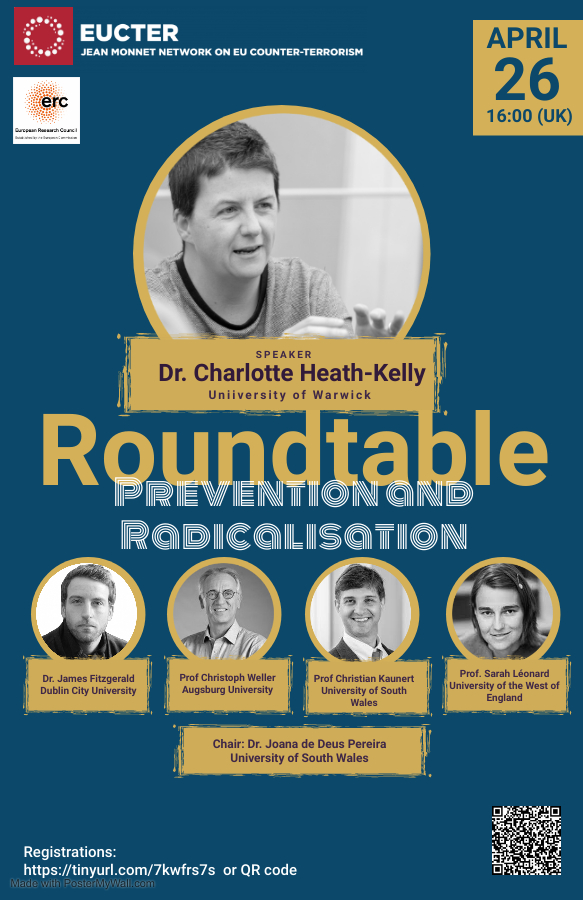‘Prevention! What do you mean?’ From the Juvenile Delinquent to Radicalisation Prevention in the United Nations, Council of Europe and European Union
ROUNDTABLE with Dr. Charlotte Heath-Kelly
The presentation traces the changing meanings of prevention – highlighting how contemporary understandings of radicalisation interventions, partnership structures and whole-of-society referral programs are indebted to earlier work on juvenile delinquency. The juvenile delinquent was a central frame for discussions of European (and global) Crime Prevention across the twentieth century. By focusing much of their attention on the juvenile, European working groups on Crime Problems unlocked the traditional orientation of penal systems towards retributive punishment/reform (after-the-crime). Because the juvenile offender is, by definition, young, criminologists and justice ministers were able to focus attention on interrupting a potential future criminal career through targeted social policy interventions upon signs of risk. This focus on the potential future offence, rather than the offence-already committed, slowly familiarised European working groups with risk-based interventions and working. The presentation tracks how gradually, and with interruptions, this preventive frame transferred to the security field – dominating much of contemporary European and Member State counter-terrorism policy.
Charlotte Heath-Kelly is Reader in International Security at the University of Warwick. She currently leads the European Research Council funded project ‘Neoliberal Terror? The Radicalisation of Social Policy in Europe’ (2020-25). Her interest in how security policy imagines the future is a dominant feature of her current work, appearing in articles including Security Dialogue and The British Journal of Politics and IR, but she has previously published two books on the intersection of memory and terrorism: Politics of Violence (Routledge, 2013) and Death and Security: Memory and Mortality at the Bombsite (Manchester University Press, 2017).

